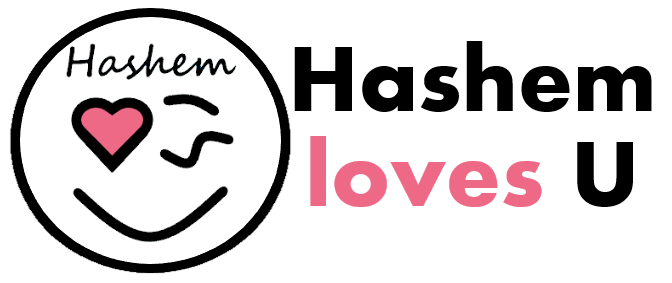After failing to curse Israel, Bilam arranged an immoral scheme to entice the people to adultery and fall for the daughters of Moab, who then pulled the men further towards idolatry and the prostration to their gods. This disaster influenced a large portion of the population and even degraded a high-ranking official named Zimri from the tribe of Shimon.
This week’s Torah portion is named after Pinchas, the son of Elazar son of Aharon the Kohen, in the merit of his resolute zealotry when he took his spear and publicly struck Zimri and the Midianite woman who he had brought into his tent, putting a halt to the plague that consumed 24,000 Jewish lives. In response, Hashem declared that Pinchas had committed an act that had saved the nation and was rewarded with a covenant of peace.
פִּֽינְחָ֨ס בֶּן־אֶלְעָזָ֜ר בֶּן־אַהֲרֹ֣ן הַכֹּהֵ֗ן הֵשִׁ֤יב אֶת־חֲמָתִי֙ מֵעַ֣ל בְּנֵֽי־יִשְׂרָאֵ֔ל בְּקַנְא֥וֹ אֶת־קִנְאָתִ֖י בְּתוֹכָ֑ם וְלֹא־כִלִּ֥יתִי אֶת־בְּנֵֽי־יִשְׂרָאֵ֖ל בְּקִנְאָתִֽי: לָכֵ֖ן אֱמֹ֑ר הִנְנִ֨י נֹתֵ֥ן ל֛וֹ אֶת־בְּרִיתִ֖י שָׁלֽוֹם
“Pinchas, son of Elazar son of Aharon the Kohen, turned back My wrath from upon the Children of Israel, when he zealously avenged My vengeance among them, so I did not consume the Children of Israel in My vengeance. Therefore, I give him My covenant of peace” (Bamidbar 25:11-12).
In the same manner that Pinchas saw the people doing something wrong and was influenced to take vengeance on God’s behalf with a spear, all the more so, should one be motivated to target the good that people do by catching them doing the right thing and spreading Hashem’s love. This could be brought about by expressing positive feedback to others and saying things like: “I like the way you…,” “I appreciate how you…,” “I respect your…,” and “You’re doing great, do you know how much nachas (pleasure) you’re giving to Hashem?!” This helps build people’s self-esteem and puts them in positive states, giving them the strength to do more good. You don’t even need to be acquainted with a person to do this, it could be a complete stranger! All the more so, must we practice this with members of our own family, our children, students, friends, and employees. As the Chozon Ish would say, “Every person needs a teaspoon of kavod (esteem or recognition) every single day.” Each of us has the ability to empower and give everlasting encouragement to others, thereby becoming a partner with Hashem in spreading His love throughout the world and truly establishing a “covenant of peace” with Him.
Most importantly, we must remember to give positive encouragement to ourselves! Many times we fail to give credit where it’s due and could be overly hard or critical on ourselves. As a result, our self-esteem or motivation to accomplish our goals could be hindered, God forbid. We must cheer ourselves on and search within to gather all the good points we could find about ourselves. (1) There must be something we could feel gratified about or even grateful for. Be good to yourself!
The Mishna in Pirkei Avot says,
וְהִסְתַּכֵּל בִּשְׁלשָׁה דְבָרִים וְאִי אַתָּה בָא לִידֵי עֲבֵרָה, דַּע מַה לְּמַעְלָה מִמְּךָ, עַיִן רוֹאָה וְאֹזֶן שׁוֹמַעַת, וְכָל מַעֲשֶׂיךָ בַסֵּפֶר נִכְתָּבִין
“(Rabbi Yehuda HaNassi said) Recall these 3 things and you will not come to sin – Know what’s above you: an eye that sees, an ear that hears, and everything you do is being recorded in a book.” (2:1)
As we know, Mishnayot generally come to teach us nuances that we wouldn’t have known otherwise. What should be obvious to all of us is the recollection of these 3 things when we’re about to perform a mitzvah or any good deed! (2) Hashem notices and gets immense pleasure from every tiny little act or effort a person makes to serve Him and connect to Him, especially in our more feeble generation that’s full of deterrents. As taught in the Zohar, if only the Jewish people knew how much Hashem loved them, they would roar like a lion, endlessly prowling after Him with fiery zeal. (3)
May Hashem always help us to see the good in ourselves and reassure others, to acknowledge how much He loves us, and spread that love wherever we go.
#SPREAD THE LOVE
(1) Likutey Moharan, I 282; (2) Tosfot in Gemara Brachot 6A; (3) Zohar 2:5B, see “[In love 24/7] #2” which discusses this idea in more depth
